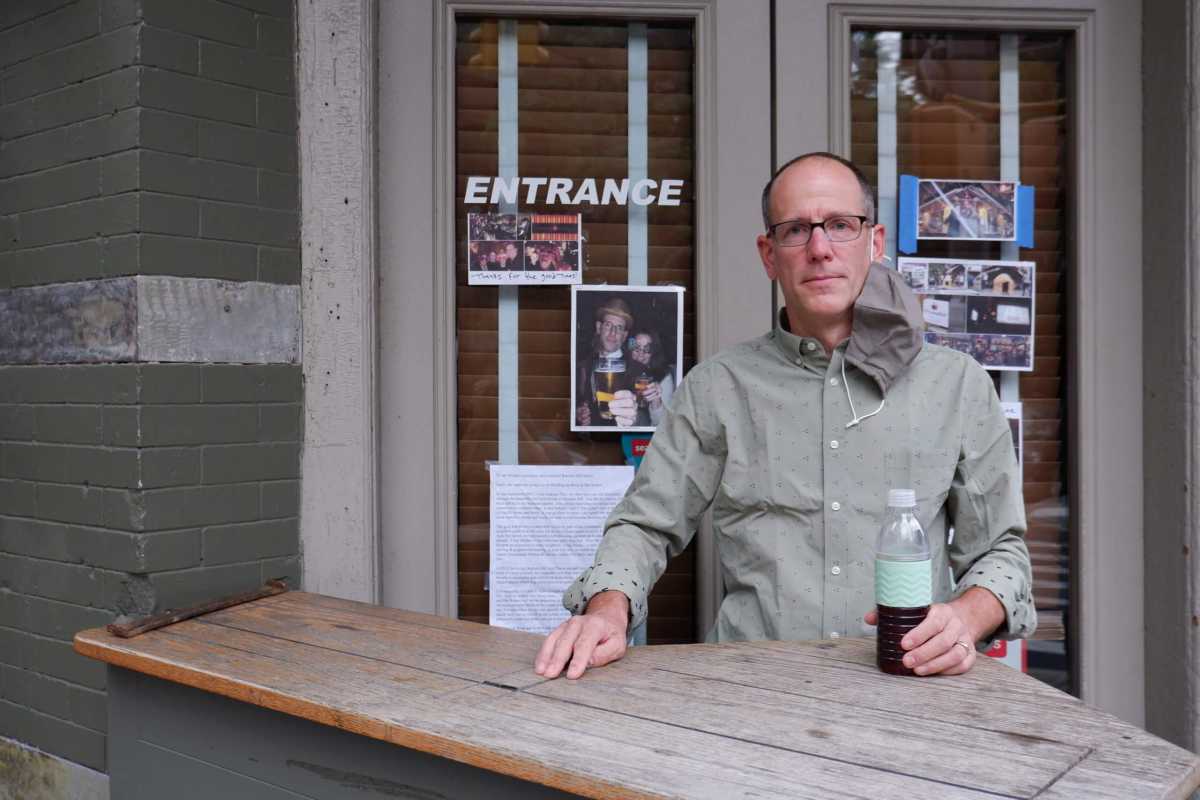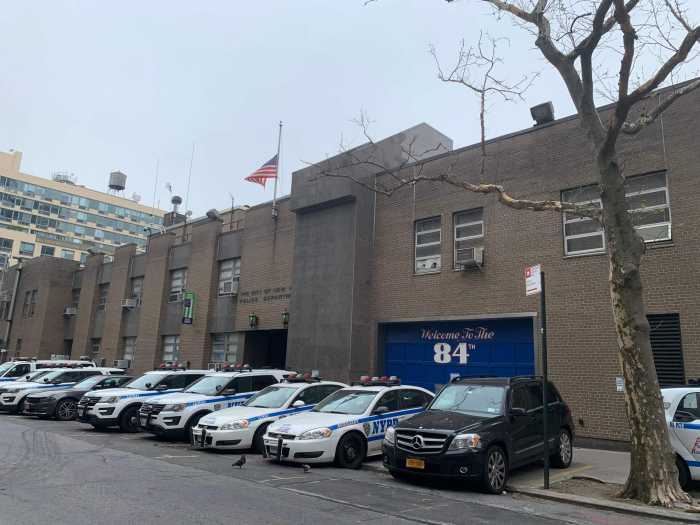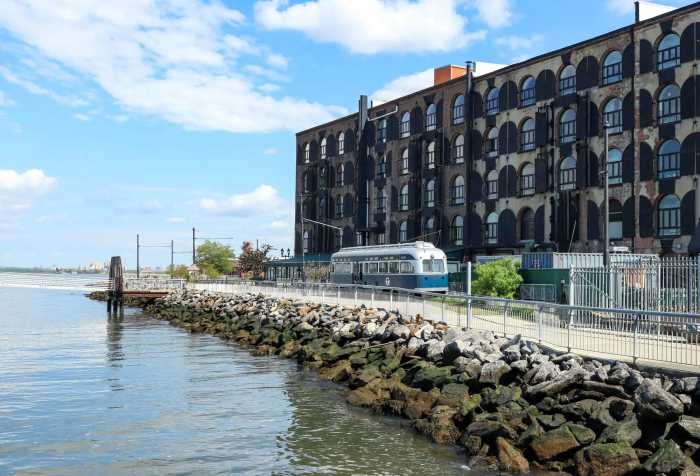Beloved Boerum Hill bistro Building on Bond permanently shuttered last month after nearly 13 years serving patrons at the corner of Bond and Pacific streets, saying their landlord was unwilling to give them a financial lifeline amid a substantial loss in revenue due to the COVID-19 pandemic.
“Unfortunately our landlord really didn’t care,” said Phil Morgan at a press conference outside the now-closed eatery. “He literally said multiple times when I was re-signing my lease in 2017, I told him how important this [restaurant] is to the neighborhood, and his response was, ‘I don’t give a s—.'”
Morgan, who opened Building on Bond in 2007, had four more years left on his lease, but agreed to cancel it on Sept. 18 after his landlord — Bay Ridge-based Francine Realty — declined to lower his rent.
The restaurateur tried pivoting to takeout and delivery for about 10 days after the city and state imposed sweeping COVID-19 restrictions in March, but decided to halt operations by the end of that month because the lower revenue failed to justify the cost, he said.
Over the following months, he tried to negotiate to lower his $25,000 monthly rent, which quickly sucked up federal small business loans, but the landlord wouldn’t budge, Morgan said.
“[Other] landlords are not willing or capable. This guy was not willing — he was definitely capable,” he said.
The building’s landlord, Brian Elgart, responded to a previous request for comment Tuesday afternoon calling Morgan’s retelling “ridiculous.”
“He’s painting himself to be a saint for the neighborhood, he’s full of crap,” Elgart said.
The landlord claimed that Morgan planned to sell the business to three partners prior to the pandemic, but that the deal fell apart once COVID hit and that the restaurateur stopped communicating with him and didn’t pay rent since March.
“There was not one communication asking can we defer something or anything — none whatsoever,” Elgart said.
Morgan disputed this, saying he was planning to add three partners and was going to retain ownership of the business along with them. He further maintained that he had asked for coronavirus concessions from Elgart, but that the landlord’s dismissive response broke down any negotiations.
“We were trying to renegotiate a lease during the pandemic and his only response was, ‘I have no questions, I’m not interested,'” Morgan countered.
The entrepreneur’s departure was a gut punch for locals, according to one civic guru, who lauded him for taking over what used to be a shabby cornerstone and turning into a gem in the middle of the brownstone neighborhood from day one.
“This was a bodega that sold sour milk and made too much noise. One day it closes and this guy comes and starts to work on the windows, there was a soft opening and we went, ‘Oh my god, we’re going to have beer,'” said Boerum Hill Association president Howard Kolins. “Even then before it opened, it just felt right.”
The owner of nearby watering hole Someday Bar said she was lucky to have a building owner that was willing to work things out during the pandemic, but worried that she could be out of business soon too if that changes.
“Right now we’re fine, but in a month — or however long when [my landlord] decides that no longer works for him or he can’t survive anymore — then that could be me, in a month, or two months,” said Megan Rickerson. “Maybe that won’t happen, but the uncertainty isn’t fair for anyone.”
A September survey of 161 borough businesses by the Brooklyn Chamber of Commerce found that 37 percent of them owed back rent with 53 percent saying they see themselves struggling during the coming three months.
An October 1 report by state Comptroller Thomas DiNapoli painted a grimmer picture, forecasting that between one third and one half of all New York City bars and restaurants could shutter permanently within the next months — potentially taking 159,000 jobs with them.
One local business booster encouraged landlords to be flexible with their tenants whenever possible, saying that working with these treasured mom-and-pop shops amid the current crisis can be the difference between life and death.
“What I have found is that if a landlord works with their tenants, their tenants will survive. If they don’t, they won’t. It’s just that simple,” said Kate Chura, the executive director of the Atlantic Avenue Business Improvement District.
But help also has to come from the federal government, said one local politician, noting only Washington has the wherewithal to bail out struggling businesses.
“We need that federal help, they’re the only ones that can really inject funding, money, into this, because they’re the only ones that can print money,” said Councilmember Steve Levin. “We need that help so that we can give everybody a fighting chance to get through this and make it to next year.”
The lawmaker late last year introduced legislation to stabilize commercial rents much like rent-stabilized residential units, but the bill was “terrifying” for real estate bigwigs and has lingered in Council limbo since November.
A candidate to replace term-limited Levin in next year’s city elections, Lincoln Restler, launched his campaign last week with a proposal to give Gotham bureaucrats the power to force landlords to lower rents if they keep buildings vacant for three months or more.
Levin said the ongoing small business crisis should reawaken interest in his proposal, along with other ways to bring rents back down and regulate them.
“Maybe now there might be some renewed interest in that because as citywide the retail landscape has changed so much, we might have an opportunity to reset things at a lower amount and let it grow in a way that is regulated and not just the Wild West New York City style we’ve been seeing over the last 15 years,” Levin said.
For his part, Morgan said he plans to start a new venture, which he hopes will be in the neighborhood, but probably not another restaurant during these trying times.
“Building on Bond has been the extension of my living room and family,” the restaurateur said. “I’m gonna do something, I would love for it to be in the neighborhood. I think opening up something right away probably isn’t on the books, I don’t think opening up a restaurant in the next three years is maybe a smart thing to do.”
Update (Tuesday, Oct. 6, 3:55 pm): This story has been updated to include comment from Building on Bond’s landlord and the restaurant owner’s response.


























